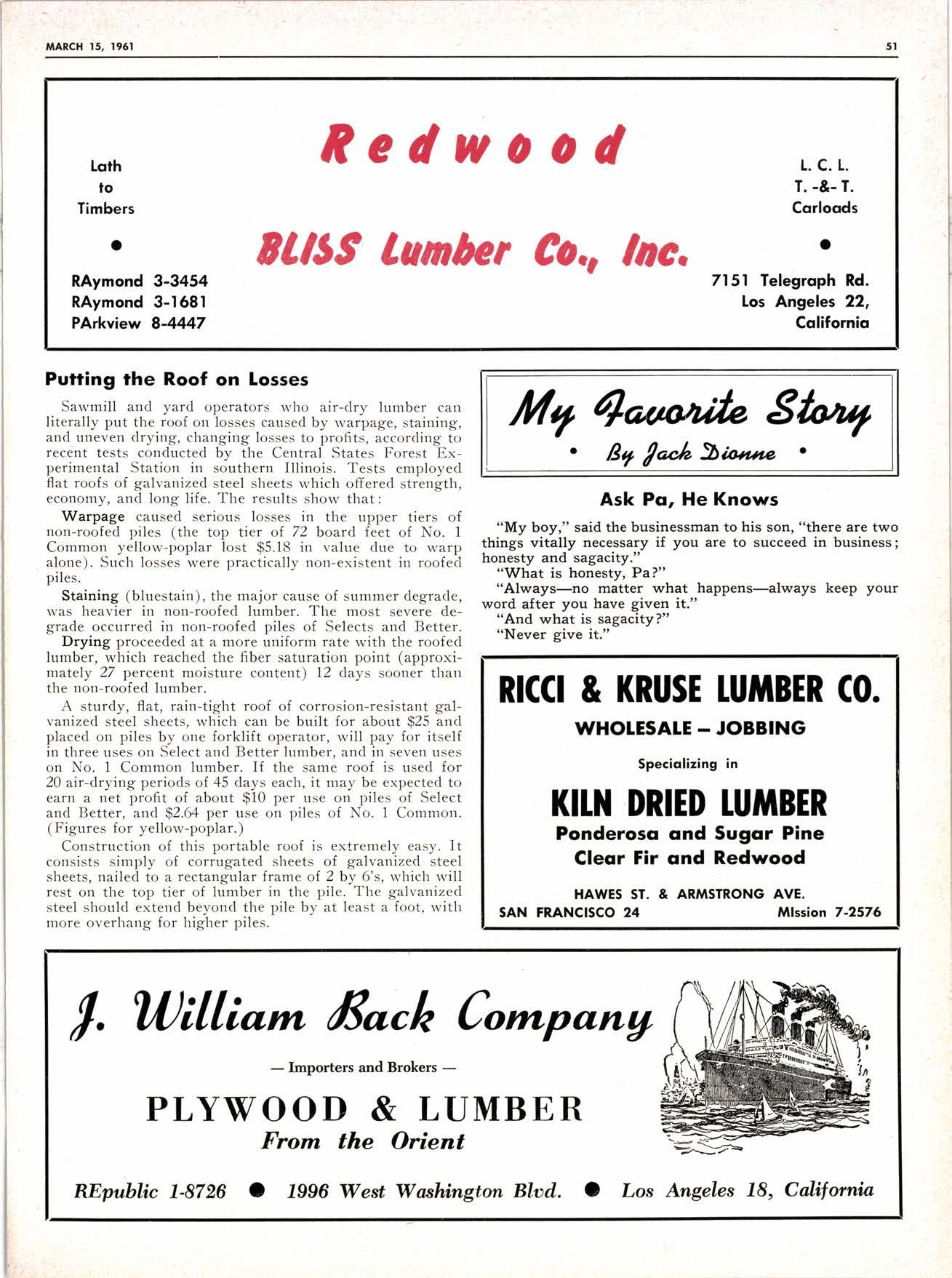
2 minute read
U. S. Legislotors Now Considering Woge-Hour Bill
The House of Representatives is now debating the controversial issue of extending the Wage-Hour law to retail firms and increasing the minimum wage to one dollar and twenty-five cents per hour.
The Chairman of the Committee, Representative Adam Clayton Powell, has announced that the committee will hear testimony of only three of the larger groups representing business and. all other trade associations will be foreclosed from testifying.
It is reported that the Committee will probably approve the President's bill or something similar. The bill then goes to the House floor for debate.
The Senate has an identical bill-S.895.
Ilere's what HR-3935 and 5.895 would do:
(1) Would extend coverage to retail enterprises having over one million dollar volume of sales annually.
(2) Would cover firms in construction or reconstruction doing three-hundred and fifty thousand dollars of sales.
(3) For those firms now having only one or two employees in interstate commerce, it would place all of the firm's employees under the act.
(4) For the newly covered employees, the minimum wage would be one dollar the first vear. one dollar and five cents the second year, one dollar and fiiteen cents the third year and one dollar and twenty-five cents thereafter.
These firms would not be subiect to overtime the first year but would be subject to overtime as follows :
(a) Over 44 hours during the second year.
(b) Over 42 hours during the third year.
(c) And over 4O hours thereafter.
The overtime would be based not on the one dollar or one dollar and twenty-five minimum but on your regular rate paid your employees above the minimum.
"Enterprise" means one or more units under common control or unified operation. It is not clear as to what would be. considered under common control or unified operation.
The Lumber Merchants Association of Northern California has taken a stand in opposition to the changes in and extension of the Wage-Hour bill, based upon the following points : "If this bill passes this year it is only a question of time before Congress expands coverage to all retail firms regardless of size. Then the next step, aside from additional increases in the minimum wage, will be to reduce the number of hours such firms may operate without paying overtime"; "The current bill is only a 'foot-in-the-door' action later to be built upon and is an unwarranted extension of Federal control in an area rightfully belonging to the States."
Continues the Association's report : "Retailing, regardless of size, has long been recognized as local in character. Each retail establishment must adjust its hours and wages to meet local competition and local customs which will vary from community to community. Wages and hours applicable in larger cities in the East would have no bearing on or resemblance to wage and hours of firms in rural areas and otheq sections of the country. A retail firm in Kansas City competes with other retailers in that area and not with retail firms in New York or here in California.
"To regulate wages and hours in a manufacturing concern which can close down when its business falls ofi is one thing. To regulate wages and hours of a retail store which must remain open at regular hours and which must pay its emplcyees regardless of the amount of business the firm does is another thing.
"Furthermore, if a firm is covered and it finds it must raise the wages of its lowest-paid employees, it must necessarily raise the wages of its higher-paid employees to (Continued, on Page 74)











